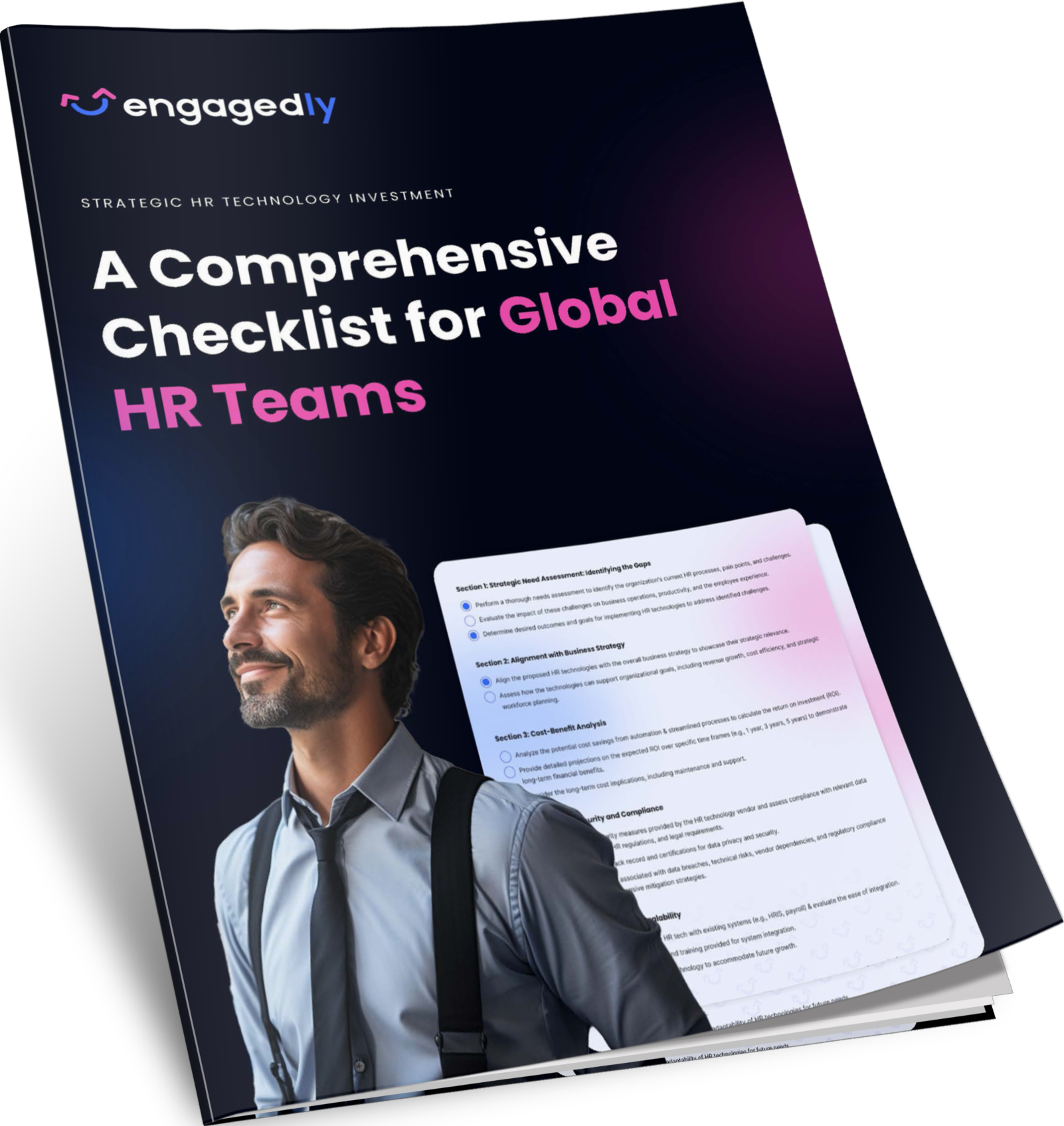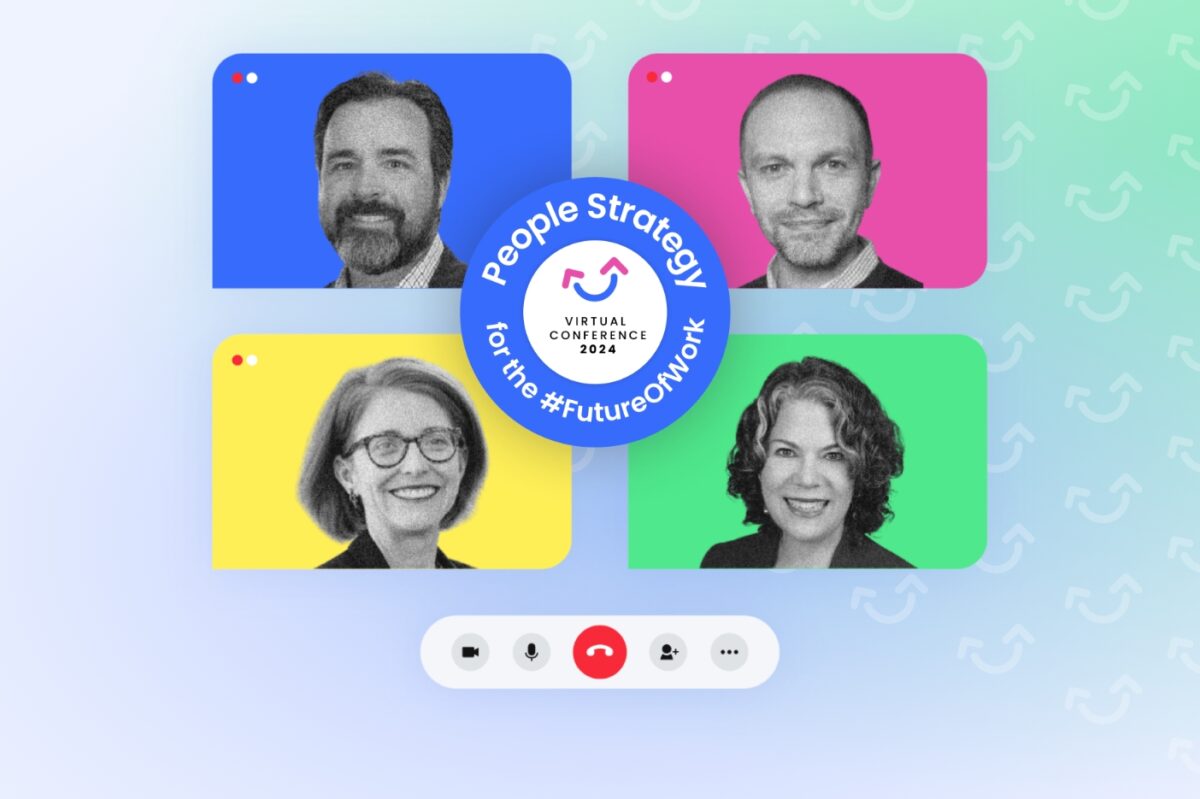The role of Chief People Officer is increasingly important as companies place more value on human capital and their employees. Commonly referred to as the CPO, the Chief People Officer serves as the head of the human resources department and oversees all aspects relating to employee experience, talent management, and organizational culture.
While every company’s structure is different, the CPO typically reports directly to the CEO and plays a key advisory role in shaping company values and strategies that impact culture, recruiting, learning and development, compensation and benefits, and diversity and inclusion initiatives.
As a strategic partner to the C-suite, a modern CPO must understand how people’s practices impact business objectives while championing programs and policies that enrich the lives of employees. In this blog post, we will explore the core responsibilities of the Chief People Officer role and what skills and qualities a successful CPO needs in today’s competitive job market.
Key Responsibilities of a CPO
As the top executive in the human resources department, the CPO is in charge of all aspects of the employee experience, from acquisition and talent management to employee involvement and progress. Key roles of the Chief People Officer include:
Talent Management
A CPO’s major tasks include hiring, developing, and retaining employees. This includes developing effective recruitment tactics, hiring the right people for the right jobs, and implementing talent development programs that align with the company’s goals and objectives. Chief People Officers must also oversee onboarding procedures to ensure that the company attracts and retains top talent. They must also develop and implement performance management systems to ensure that the staff are rewarded for their efforts and that possibilities for promotion exist.
Culture and Engagement
Companies with the greatest levels of employee engagement earn 21% more than their competitors. To increase employee engagement in the workplace, CPOs must foster a positive and inclusive work environment in which everyone can express their ideas and opinions without fear of being criticized. Chief People Officers must also promote open and honest communication and feedback channels, as well as endeavor to create a diverse and inclusive workplace in which everyone feels valued and can achieve their full potential.
HR Operations and Strategy
The Chief People Officer is responsible for overseeing all HR functions, from payroll and benefits to compliance and so on. The CPO is also in charge of crafting HR policies that are in line with the company’s objectives and creating an environment that promotes employee growth and success. Additionally, CPOs are responsible for collecting and evaluating data on key HR metrics like employee turnover, engagement, and performance to obtain vital insights into their workforce and make data-driven decisions. They are also responsible for partnering with other departments, like finance, to ensure a fair pay structure.
The Impact of a Strong CPO
Increased Employee Engagement and Productivity
By focusing on creating an environment where employees feel motivated and valued, Chief People Officers help enhance employee engagement and productivity in the workplace. They implement several measures to increase employee engagement, such as providing opportunities for career advancement, encouraging work-life balance, and cultivating a positive atmosphere at work.
Improved Talent Acquisition and Retention
Replacing an employee costs 6-9 months of their pay, inclusive of hiring, onboarding, and training expenses. A CPO empathizes with employees, recognizing their needs, worries, and goals. Furthermore, they invest in new recruitment methods to assist in finding the best applicants, minimizing time-to-fill and assuring a better fit for the firm, resulting in improved talent acquisition and retention.
Enhanced Employer Brand and Reputation
By aligning with marketing teams and other strategic partners, Chief People Officers ensure that the brand message is consistent across internal and external channels, resulting in enhanced employer brand and reputation.
Stronger Alignment with Business Goals
CPOs collaborate with Chief Executive Officers (CEOs) to develop strategies that align with the company’s goals. This entails matching business objectives to market trends, consumer needs, and emerging opportunities. A CPO sets the tone for the organization by cultivating an innovative and forward-thinking culture, ensuring that all departments collaborate to achieve common goals.
Contribution to Overall Organizational Success
The CPO is in charge of the more diverse HR department. They are involved in developing the strategy and vision that will enable the organization to achieve long-term success. The CPO reports to the CEO and serves as the architect for the company’s talent strategy and corporate culture initiatives, which contribute to overall organizational performance.

Key Skills and Qualities of a Successful CPO
Strong Leadership and Communication Skills
A CPO should have excellent leadership and communication skills. With strong strategic leadership skills, the individual excels in personnel planning, succession management, and business brand development to ensure the company’s continued growth. Furthermore, good communication skills help CPOs resolve conflicts, negotiate successfully, and lead with compassion, ensuring that the human aspect is never overlooked in the pursuit of corporate goals.
Strategic Thinking and Business Acumen
CPOs must be skilled at developing a strategic vision for the future based on a thorough examination of market trends, internal resources, and the organization’s mission and values. They must also have an understanding of business operations and be able to understand and evaluate how systems and processes interact, how value is derived, and how profit is generated.
Deep Understanding of HR Best Practices
The introduction of the Chief People Officer post is a tactical shift, addressing a broader set of duties that extend beyond traditional HR functions. Hence, a CPO must have an in-depth understanding of HR practices and trends, which include HR concepts, policies, recruitment, talent acquisition, and best practices.
Data-driven Decision Making
The CPO must know how to use data analytics to obtain insight into HR key performance indicators (KPIs), employee performance, and organizational effectiveness. Chief People Officers who appreciate the value of data can provide strategic advice and promote evidence-based decisions that align with company objectives.
Ability to Build Relationships and Influence Stakeholders
Strong stakeholder relationships are essential for generating successful learning. However, these relationships are not always easy to establish or maintain. Thus, CPOs should be able to manage stakeholder relationships and organizational dynamics effectively.
Passion for People and Culture
Passion naturally enhances your contribution. So, the more you care, the more you’re willing to give. CPOs should be passionate about people and culture. Chief People Officers who can foster an environment that empowers employees and connects with the company’s vision will increase engagement, productivity, and, ultimately, financial success.
The Future of the CPO Role
The HR sector is undergoing a fundamental transition spurred by technological advancements, changing worker demographics, reskilling and upskilling, managing diversity, and global concerns. Organizations are searching for strategic leaders who can be trusted and can push the organization to success. Knowing the value of employees, the CPO can lead the human resources department, ensuring that suitable individuals are recruited, retained, and trained to support the organization’s growth and success.
CPOs are responsible for aligning an organization’s strategy, technology, competitiveness, and culture. However, in the future, Chief People Officers will also face a variety of challenges, including managing data and technology, promoting employee well-being, attracting suitable talent in tough markets, creating a flexible and agile company culture, and fostering diversity. To overcome these challenges, CPOs need to adapt and evolve with the latest technologies and trends to remain effective in a competitive world.
The potential future direction for the role includes an enhanced focus on data and technology and a specialization in addressing concerns related to company culture.
Summing it Up!
A Chief People Officer (CPO) plays a pivotal role in shaping an organization’s human resources landscape and fostering collaboration with the executive leadership. This influential figure assumes a visionary stance, spearheading strategic planning and ensuring alignment between HR practices and the company’s overarching objectives, thereby contributing significantly to the organization’s enduring success.
The CPO shoulders the crucial responsibility of crafting the company’s people strategy, with a keen focus on enhancing employee engagement and steering the organization towards prosperity. This multifaceted role encompasses tasks such as talent acquisition, staff development, performance management, and the cultivation of a robust and positive company culture. In the dynamic and evolving business landscape, CPOs are tasked with showcasing their expertise by staying attuned to the latest HR trends and addressing the ever-changing needs of the organization.

Frequently Asked Questions
How does a CPO help create an environment of growth in organizations?
A Chief People Officer fosters organizational growth by strategically aligning HR practices with company objectives, overseeing talent acquisition and staff development, and cultivating a positive company culture. Their visionary role ensures that the workforce is engaged, contributing to long-term success in the evolving business environment.
What education or professional experience is beneficial for a CPO?
A background in Human Resources, including positions such as HR director or vice president of HR, is often required for a CPO position. This provides individuals with an awareness of HR processes, policies, and best practices. Some businesses will prefer candidates who have specific levels of education, qualifications, and industry-related experience.
How does the role of a CPO affect the bottom line of the organization?
A Chief People Officer (CPO) influences the organization’s bottom line by strategically aligning HR practices with company objectives, fostering employee engagement, and optimizing talent management, ultimately enhancing overall efficiency and productivity. The CPO’s impact extends to creating a positive company culture, improving retention, and attracting top talent, contributing to long-term financial success.
Subscribe To The Engagedly Newsletter
Author
Jacqueline Martinez
Director of Marketing
Jacqueline Martinez is the Director of Marketing at Engagedly, where she leads initiatives to fuel the marketing-to-sales pipeline through strategic content management, revenue operations, and thoughtful mentoring. She is a growth-focused marketing executive with extensive experience driving multi-million-dollar revenues across SaaS, technology, real estate, oil & gas, and financial services industries.








